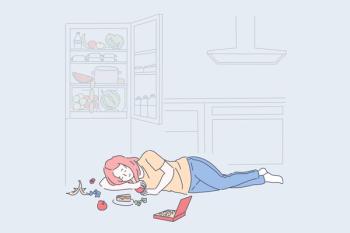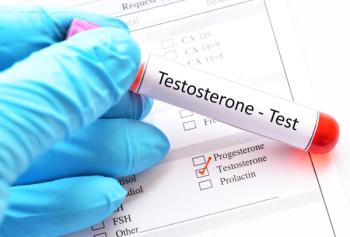
Clean Eating to the Extreme
Although weight loss may be a favorable feature of healthful diets, "clean eating" can be taken to extremes. In this video, we interview Thomas R. Dunn, PhD, author of a recent CME for Psychiatric Times. Orthorexia Nervosa.
EATING DISORDERS
Orthorexia nervosa (or pathologically “healthy” eating) is distinct from anorexia nervosa, bulimia, and avoidant/restrictive food intake disorder. There are high-risk populations for ON, such as athletes and others who are focused on being healthy However, most of those individuals will only experience social impairment. On the other hand, individuals who view food as medicine are at increased risk for life-threatening medical complications and even death.
In this video, we interview Thomas R. Dunn, PhD, author of a recent CME for Psychiatric Times,
Transcript edited for brevity and clarity. For the entire interview, please watch the video. -Ed
Laurie Martin (LM): Tell us abour your CME for Psychiatric Times.
Thomas R. Dunn, PhD: About 20 or 30 years ago there was a physician out here in Colorado who recognized that people were very passionate about the quality of food that they were eating, and they were going out of their way to try to find the freshest, most nutritious foods they could.
On the surface this sounds very reasonable, but we want to be careful about what kinds of foods we eat. One of the things he noticed was that there were people who were getting too carried away with this quest to be as healthy as possible. So he developed or coined this term called orthorexia, which is a sort of a straight or rigid diet. Over the years, European researchers especially have been studying this notion that there are people who seem to get pathological about their healthful eating.
So, most of us are aware of anorexia nervosa, a condition where people are worried about being fat; in the case of orthorexia, we are worried about being unhealthy. And so, there's a tipping point. There seem to be people who are overly thoughtful about their diet, when it gets to the point where they restrict to the point of not getting their nutrition. They may start off being vegetarian, then they're vegan, then they're raw, and then they restrict what they can eat.
There are individuals that have rigid eating habits that have become problematic for them, in their social circles. For example, I dealt with a young woman who was flabbergasted that her fiance would break up with her. After they were engaged, her future mother and father-in-law were coming to celebrate, and they decided to go out to dinner. Sharing meals is a central way of celebrating. He told her, "Please don't be weird about the food," and she got into an argument with the waitress over the croutons. It was this pattern of interacting over diet, that was really disruptive in this case to her social life.
I've seen a couple of people in my practice, in the hospital for severe malnourishment because they believe their diet is going to cure some sort of malady. People who are engaging in food as medicine in that they have a condition, and they're fighting to try to treat that condition. By adopting an overly rigid diet, and they develop a blind spot. They don't see that not only is it not helping, but it's causing additional medical problems.
LEM: Sometimes there might be victim blaming for somebody with cancer who "has a terrible diet," eats too much sugar, and so on.
Thomas M. Dunn, PhD: People are willing to pass judgment on diets, about what people are eating at restaurants. And there has been some who have suggested that maybe orthorexia is really just a flavor of anorexia, and that is certainly a little bit more fashionable to say "I'm on a cleanse," or "I'm doing this diet." And we give people a pass for that. . . There is a lot of pressure out there. I recently evaluated a young man who I was very concerned with having a first break psychosis and his parent was very concerned that he was getting the right vitamins; she has done a lot of research and vitamins were going to help him though his substantial psychiatric emergency.
Newsletter
Receive trusted psychiatric news, expert analysis, and clinical insights — subscribe today to support your practice and your patients.







